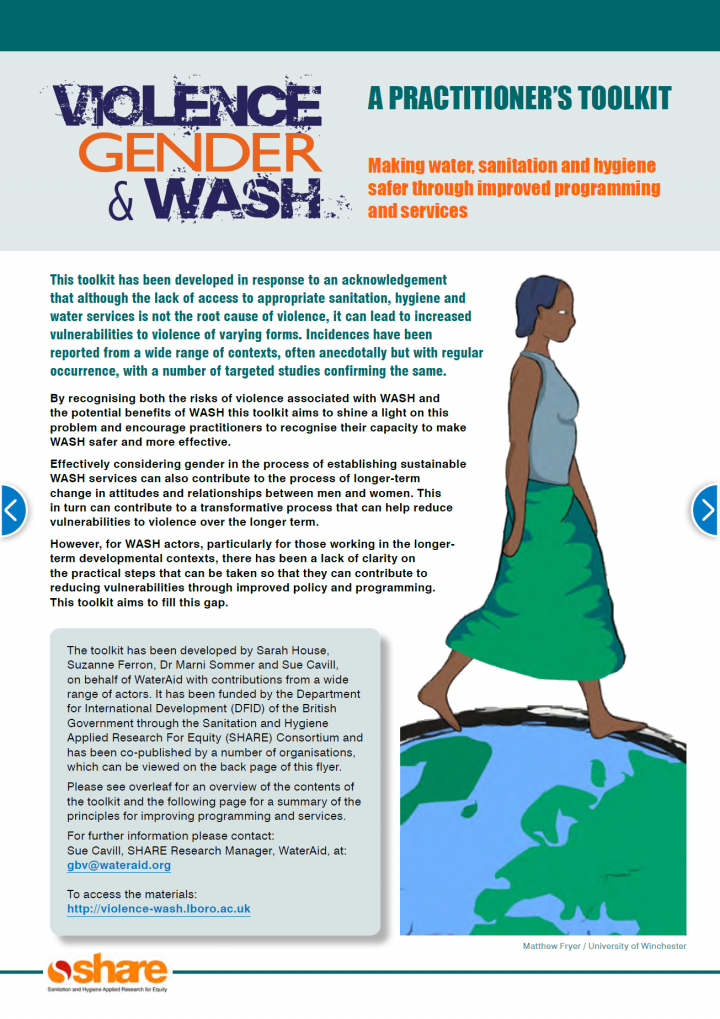Violence, Gender and WASH: Practitioner Toolkit - Making water, sanitation and hygiene safer through improved programming and services House, S., Ferron, S., Sommer, M., Cavill, S. (2014)
This toolkit has been developed in response to an acknowledgement that although the lack of access to appropriate water, sanitation and hygiene services (WASH) is not the root cause of violence, it can lead to increased vulnerabilities to violence of varying forms. Incidences have been reported from a wide range of contexts, often anecdotally but with regular occurrence, with a number of targeted studies confirming the same.
By recognising both the risks of violence associated with WASH and the potential benefits of WASH, this toolkit aims to shine a light on this problem and encourage practitioners to recognise their capacity to make WASH safer and more effective. Effectively considering gender in the process of establishing sustainable WASH services can also contribute to the process of longer-term change in attitudes and relationships between men and women. This in turn can contribute to a transformative process that can help reduce vulnerabilities to violence.
However, for WASH actors, particularly for those working in the longer-term developmental contexts, there has been a lack of clarity on the practical steps that can be taken so that they can contribute to reducing vulnerabilities through improved policy and programming. This toolkit aims to fill this gap.
The toolkit contains many individual files. We have only uploaded the flyer below. The complete set of files for the toolkit available from the external link below.
Bibliographic information
House, S., Ferron, S., Sommer, M., Cavill, S. (2014). Violence, Gender and WASH: Practitioner Toolkit - Making water, sanitation and hygiene safer through improved programming and services London, UK: WaterAid/SHARE
Filter / Tags
Sustainable WASH in institutions and gender equality (WG7)PractitionersEnglishHighlight on Gender Theme PageSexual and gender-based violence
External links
Violence, Gender and WASH - Practitioner Toolkit website

